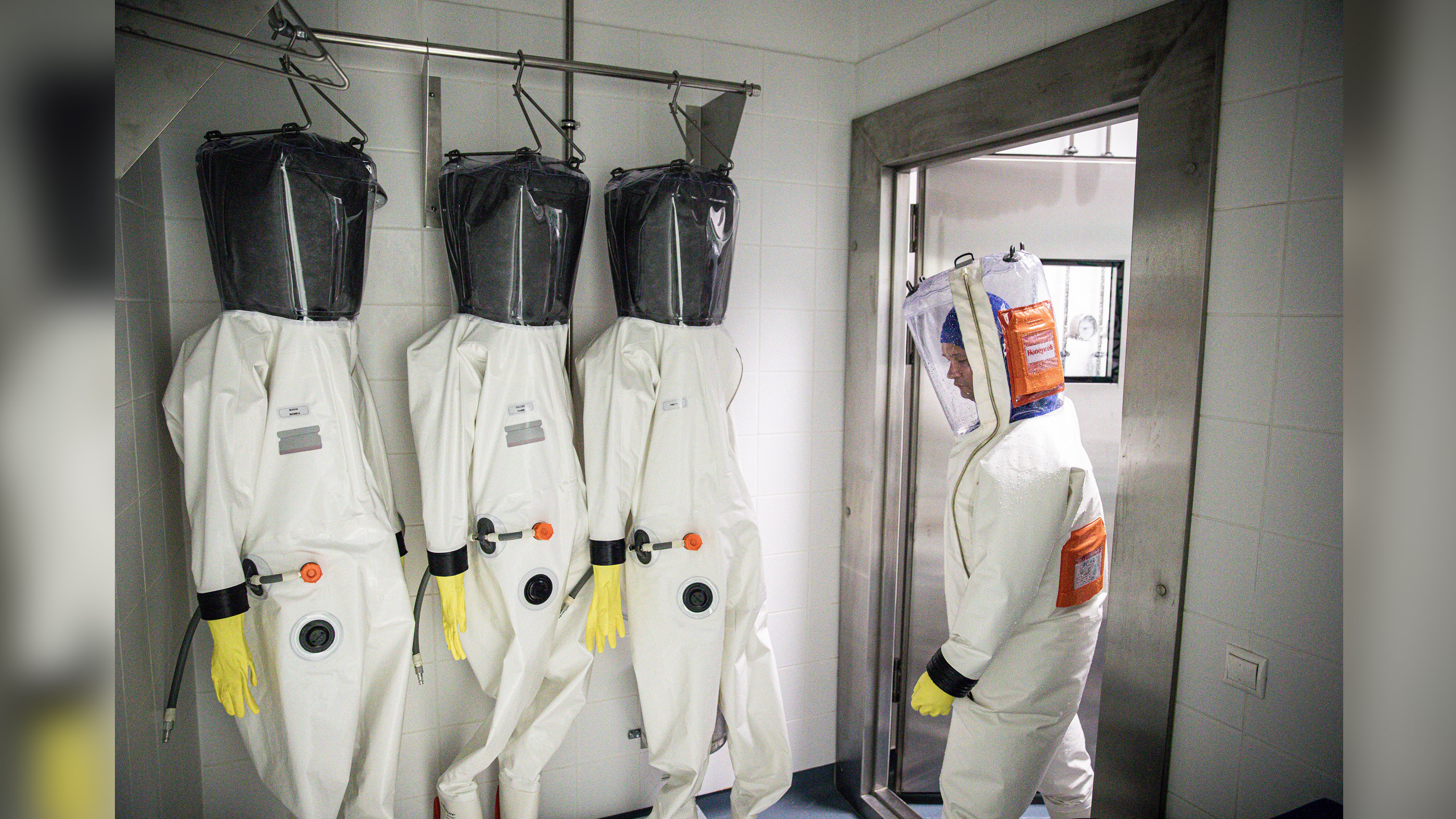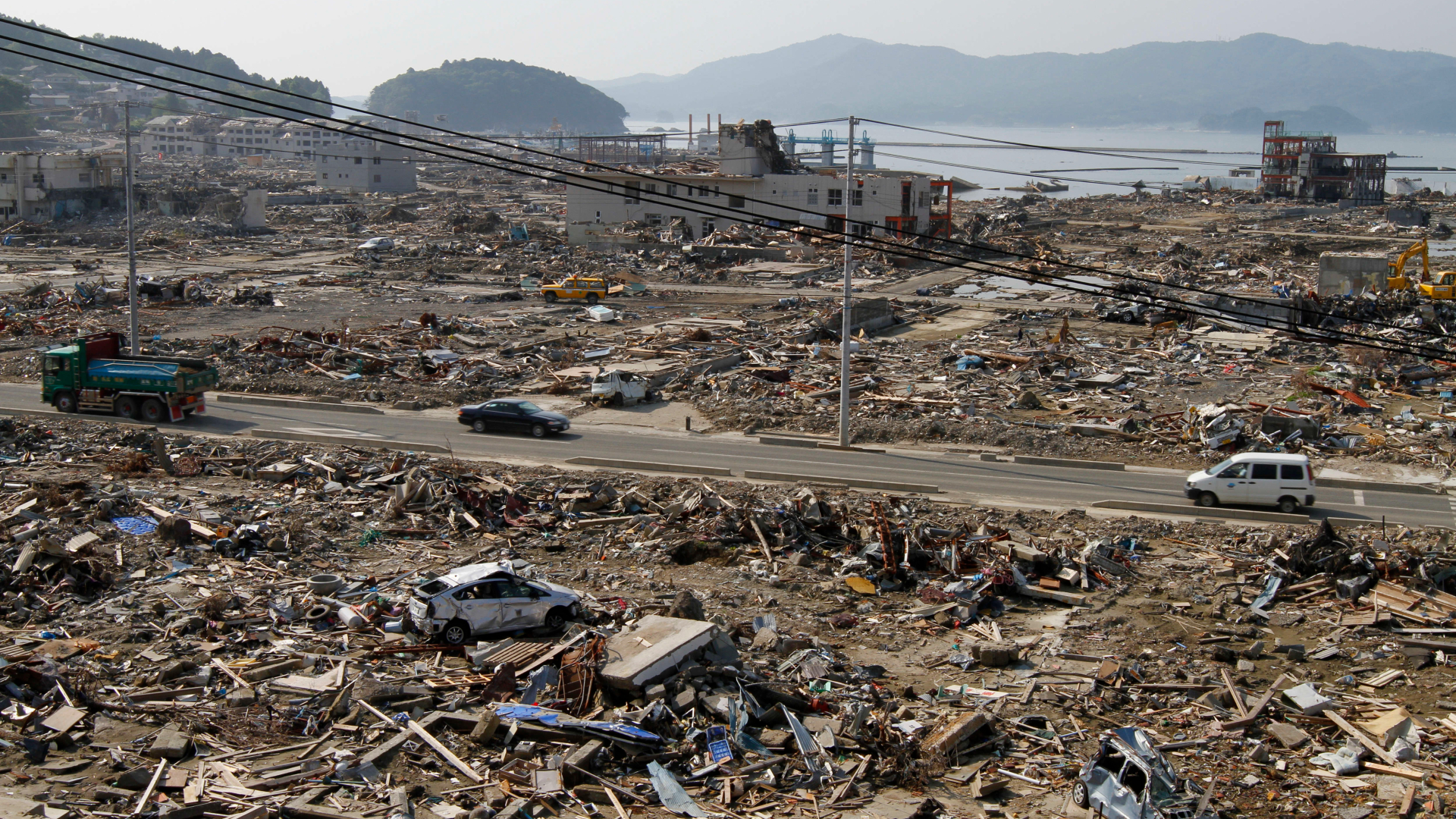Countries hosting dangerous pathogen labs lack biosecurity

Get the world’s most fascinating discoveries delivered straight to your inbox.
You are now subscribed
Your newsletter sign-up was successful
Want to add more newsletters?

Delivered Daily
Daily Newsletter
Sign up for the latest discoveries, groundbreaking research and fascinating breakthroughs that impact you and the wider world direct to your inbox.

Once a week
Life's Little Mysteries
Feed your curiosity with an exclusive mystery every week, solved with science and delivered direct to your inbox before it's seen anywhere else.

Once a week
How It Works
Sign up to our free science & technology newsletter for your weekly fix of fascinating articles, quick quizzes, amazing images, and more

Delivered daily
Space.com Newsletter
Breaking space news, the latest updates on rocket launches, skywatching events and more!

Once a month
Watch This Space
Sign up to our monthly entertainment newsletter to keep up with all our coverage of the latest sci-fi and space movies, tv shows, games and books.

Once a week
Night Sky This Week
Discover this week's must-see night sky events, moon phases, and stunning astrophotos. Sign up for our skywatching newsletter and explore the universe with us!
Join the club
Get full access to premium articles, exclusive features and a growing list of member rewards.
Three-quarters of countries that host labs designed for the study of the most dangerous pathogens fail to meet the highest standards for biosafety and biosecurity.
Theories about a laboratory origin for SARS-CoV-2, the virus that causes COVID-19, have spotlighted biosafety level 4 (BSL-4) laboratories. The Wuhan Institute of Virology, located near the market where the first detected coronavirus superspreader event occurred, is one such laboratory. The likelihood that the coronavirus could have escaped from the lab is hotly debated, with some researchers saying that the possibility should be investigated more thoroughly.
Related: 14 coronavirus myths busted by science
Regardless of SARS-CoV-2's origins, biosecurity deserves more attention, according to a new op-ed in The Conversation by Filippa Lentzos, a senior lecture in science and international security at King's College London, and Gregory Koblentz, a professor and director of the biodefense graduate programs at George Mason University. There are 59 BSL-4 labs in 23 countries, Lentzos and Koblentz wrote, and only a quarter of those countries score high on the Global Health Security (GHS) Index. The GHS Index is tallied by the Nuclear Threat Initiative (NTI) and the Johns Hopkins Center for Health Security (JHU), and it measures a country's ability to prevent and respond to disease outbreaks and other biosecurity threats.
"This suggests plenty of room for improvement for countries to develop comprehensive systems of biorisk management," Lentzos and Koblentz wrote.
Europe hosts most of the BSL-4 labs in the world, with 25, followed by North America with 14 and Asia with 13. Australia hosts four and Africa has three. Only 40% of the countries that are home to a BSL-4 lab are members of the International Experts Group of Biosafety and Biosecurity Regulators, which works to strengthen international biosecurity. And though the nongovernmental International Organization for Standardization has developed a standard for managing biorisk, none of the BSL-4 labs around the world have signed on, Lentzos and Koblentz wrote.
Finally, few of the countries hosting BSL-4 labs regulate dual-use research, which is research conducted for beneficial reasons that could cause harm, or gain-of-function research, which involves modifying microorganisms to become more infectious or deadly, the researchers wrote.
Get the world’s most fascinating discoveries delivered straight to your inbox.
"While the COVID-19 pandemic has served as a stark reminder of the risks posed by infectious diseases and the importance of a robust biomedical research enterprise for saving lives, we also need to keep in mind that such research can carry risks of its own," they wrote.
Read the original op-ed at The Conversation.
Originally published on Live Science.

Stephanie Pappas is a contributing writer for Live Science, covering topics ranging from geoscience to archaeology to the human brain and behavior. She was previously a senior writer for Live Science but is now a freelancer based in Denver, Colorado, and regularly contributes to Scientific American and The Monitor, the monthly magazine of the American Psychological Association. Stephanie received a bachelor's degree in psychology from the University of South Carolina and a graduate certificate in science communication from the University of California, Santa Cruz.
 Live Science Plus
Live Science Plus










